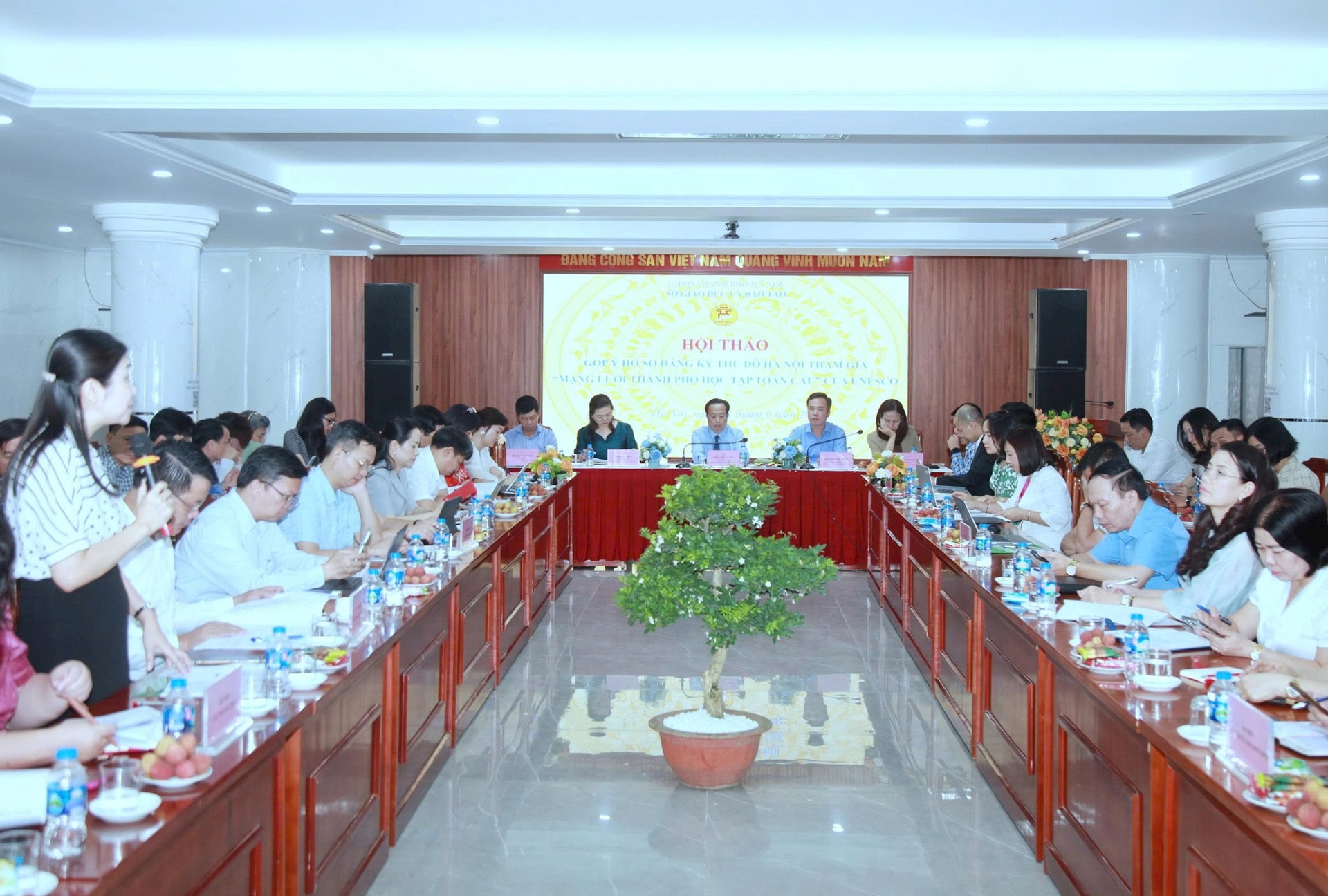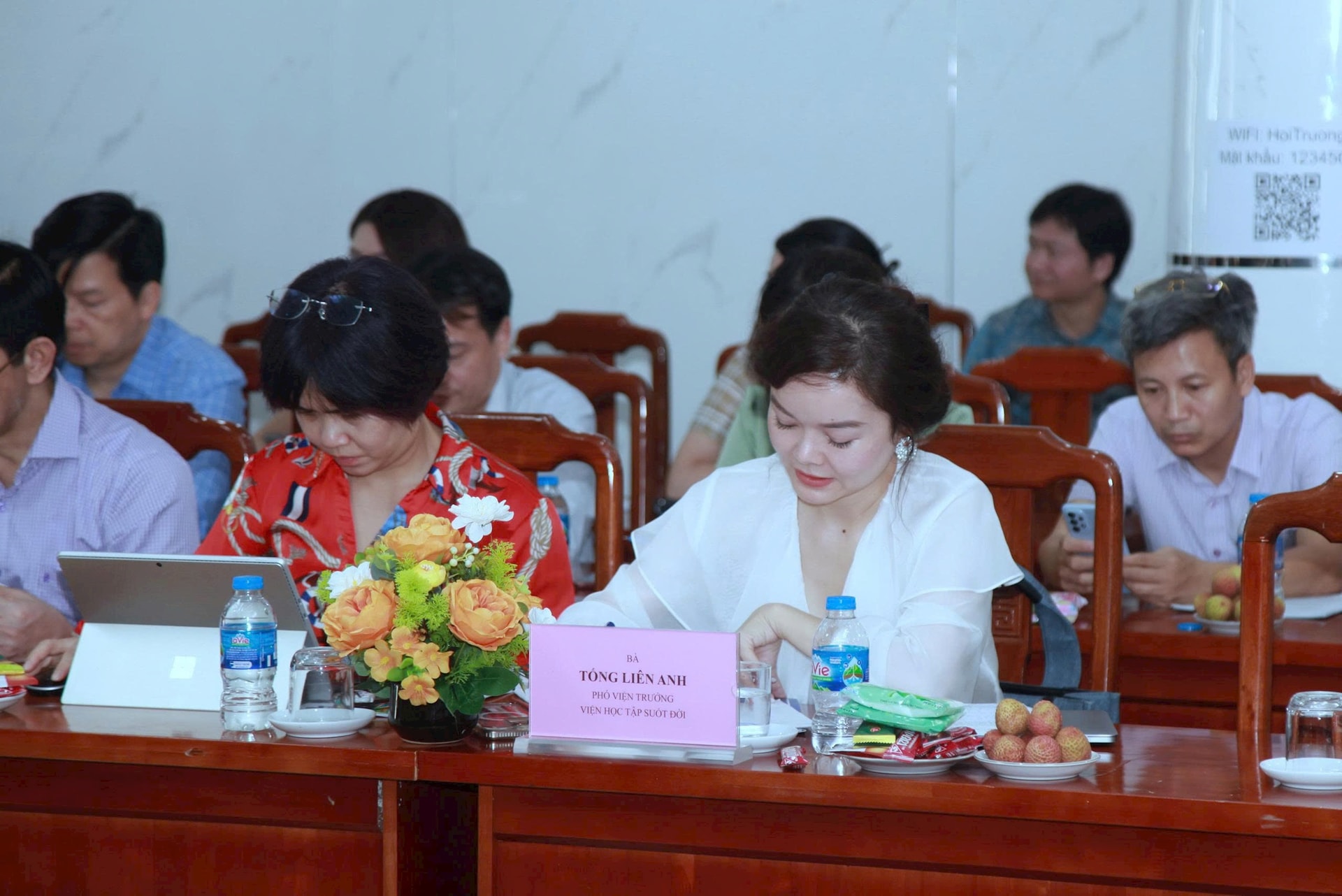By registering for membership in the UNESCO Global Network of Learning Cities, Hanoi commits to supporting the network's objectives and activities as stipulated, while also expressing its desire to contribute actively to other member cities by sharing experiences in building a learning city.

Overview of the meeting.
Hanoi has emerged as a successful model in promoting lifelong learning, especially through digital skills training and educational innovation. The city is also positioned to support other urban centers in crafting educational policies that align with rapid urbanization and economic growth.
Hanoi also commits to promoting cooperation and innovation, organizing international forums and conferences to share experiences in applying technology in education and collaborating with other cities to develop online learning platforms and digital education programs. Previously, the Hanoi People's Committee issued a plan to make Hanoi a member of the UNESCO Global Network of Learning Cities, with the goal of completing the application process by 2025.
The Hanoi People's Committee has instructed relevant units to continue enhancing and innovating communication efforts using diverse and practical forms so that the residents of the capital better understand the role of lifelong learning and the necessity of building a learning society in the city.
At the same time, units are required to develop creative and diverse communication campaigns, including the use of online platforms and social media to reach and engage with the community, thereby creating a strong awareness of the importance of Hanoi's participation in the UNESCO Global Network of Learning Cities.
The city has tasked the Department of Education and Training with leading efforts to ensure disciplined, high-quality teaching across educational institutions and vocational and continuing education centers. Responsibilities include implementing lifelong learning initiatives, fostering a learning society, and encouraging lower secondary graduates to pursue vocational education as part of post-graduation student streamlining.
The department will also organize training for management staff and teachers and promote distance and online learning methods to support lifelong education and meet UNESCO’s Global Learning City standards.

Delegates at the meeting.
Delegates at the workshop generally agreed with the dossier prepared by the Hanoi Department of Education and Training, offering numerous suggestions to enhance the document. These included adding information, revising certain expressions, and trimming wording to create a more concise, coherent, and persuasive dossier that highlights Hanoi’s unique characteristics.
Tran The Cuong, Director of the Hanoi Department of Education and Training, affirmed the department’s commitment as the lead agency to work closely with other domestic and international bodies to develop a thorough, rigorous, and scientifically grounded application that fully meets UNESCO’s requirements while accurately reflecting Hanoi’s current state, potential, and aspirations.
The department will also advise the Hanoi People's Committee on implementing feasible solutions to promote lifelong learning within the community, improve the learning capacity of individuals and organizations, and thereby help create a dynamic, innovative learning society, soon achieving recognition as a "Global Learning City."